With the new regulations of the Housing Law just passed by the National Assembly , both investors and buyers of social housing expect to remove the "bottlenecks" so that many low-income people have the opportunity to own apartments with necessary living conditions, ensuring social security.
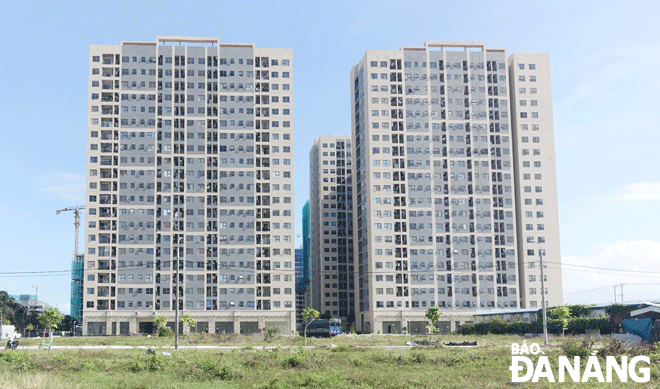 |
| Investors and buyers of social housing hope to remove the "bottlenecks" so that low-income people have the opportunity to own apartments. IN PHOTO: Social housing apartment project in Bau Tram Lakeside green urban area . Photo: HOANG HIEP |
Still "difficult" for both buyers and sellers
Despite facing considerable pressure on investment capital and heavy rain during the stormy season, on December 12, Saigon - Da Nang Investment Joint Stock Company, the investor of the Social Housing Apartment Complex project in the Bau Tram Lakeside green urban area (Hoa Hiep Nam ward, Lien Chieu district), topped out the 21-storey CT5 building. This social housing project has 10 21-storey apartment buildings, with 3,358 high-quality apartments, ranging in area from 35.3-70m2 with a total investment of VND 2,395 billion, serving the housing needs of Da Nang residents, displaced households and low-income workers in the city. This project is also a bright spot in the Da Nang real estate market from the end of 2022 to present with the completion of construction of 4 buildings (including: CT1, CT2, CT3 and CT4) with a total of 1,549 apartments and handover to buyers.
Up to now, there have been about 3,000 people living in these 4 buildings. In addition to the CT5 building, in the last month of 2023, it is expected that 3 more buildings including CT6, CT9, CT10 will continue to be topped out. Mr. Nguyen Tuong Huy, representative of Saigon - Da Nang Investment Joint Stock Company, said that the investor is trying to speed up the construction progress of the buildings, the fastest is the end of the third quarter of 2024 to complete construction for handover to buyers. Currently, the investor is facing some pressure, especially the number of people registering to buy social housing in the project has gradually decreased, the progress of selling apartments is also slow. However, the investor is trying to concentrate resources to complete the project and hand over social housing in 2024 to buyers. The project investor representative also expressed his hope that the city will soon reduce the criteria for approving buyers so that many low-income people who are frustrated about housing can buy.
According to research, many low-income people and those with housing difficulties are not eligible to buy social housing because they do not have a household registration or temporary residence registration for at least 1 year in Da Nang. Many people who meet the residency requirements are subject to regular personal income tax, but their salary for personal income tax is still low. Meanwhile, social housing investors have been facing significant obstacles in terms of investment capital, low profits, and incentive mechanisms that make it difficult to attract businesses to invest in social housing...
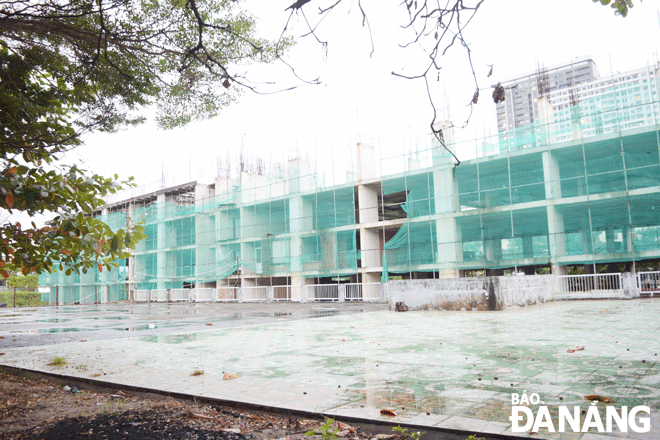 |
| Social housing projects that are facing difficulties are about to have their “bottlenecks” removed. IN PHOTO: The apartment complex project for low-income people in An Trung 2 residential area is unfinished and construction has been temporarily suspended. Photo: HOANG HIEP |
Promoting the development of social housing segment
Many difficulties, obstacles, and "bottlenecks" regarding social housing for both buyers and investors have been resolved in the Housing Law recently passed by the National Assembly. Accordingly, the new Housing Law has abolished the residence conditions for those who are allowed to buy or rent-purchase social housing. Investors in social housing projects that do not use state budget capital are entitled to incentives such as: exemption from land use fees and land rent for the entire land area of the project; incentives for value added tax and corporate income tax according to the provisions of the law on tax; maximum profit of 10% of the total construction investment cost for the area of social housing construction; maximum 20% of the total residential land area within the project has been invested in building technical infrastructure systems to invest in building business and service works, trade, commercial housing, etc.
Lawyer Nguyen Van Dinh, a real estate legal expert, said: “Currently, the social housing segment is highly anticipated because there are many opportunities and room for development. Furthermore, the Housing Law recently passed by the National Assembly has provisions on expanding the subjects of support and social housing support as well as regulations on residence conditions for social housing buyers. Later, when developing a decree guiding the implementation of the Housing Law, the Government will stipulate or empower provinces and cities to stipulate income conditions for people to buy social housing. Thus, the two basic conditions on subjects eligible to buy social housing will be removed and loosened, helping to stimulate demand for social housing.”
The Housing Law also adds that the subjects eligible for social housing construction are manufacturing enterprises in industrial zones, in the form of accommodation for workers. With this policy, enterprises are able to overcome difficulties, ensure human resources, help stabilize production, stabilize workers' lives and be suitable for real life. The land fund for social housing development is also newly regulated in the direction of assigning authority to the provincial People's Committee to decide on the location of social housing construction in places where people have high housing needs to complete the housing development program in each phase, instead of being within the 20% land fund for social housing construction of urban area projects.
“This is very harmonious and flexible for localities and businesses. Investing in social housing is also more attractive to investors, with a better profit mechanism. In the near future, when the social housing segment develops, real estate segments will also develop, stimulating the real estate market and promoting economic growth,” said Lawyer Nguyen Van Dinh.
Director of the Institute of Real Estate Research and Training (Da Nang) Nguyen Duc Lap also commented: “With the new regulations of the Housing Law, the supply of affordable real estate, especially social housing, will soon develop strongly because it is no longer bound by the conditions of residence and income of social housing buyers. Along with that, the Vietnam General Confederation of Labor is allowed to invest in social housing. The law also opens up for foreign investors and gives more incentives to investors participating in the development of social housing. The law also has more specific regulations to promote the development of housing for soldiers and add students, students of ethnic boarding schools, workers in enterprises and cooperatives to the beneficiaries of social housing policies”.
HOANG HIEP
Source










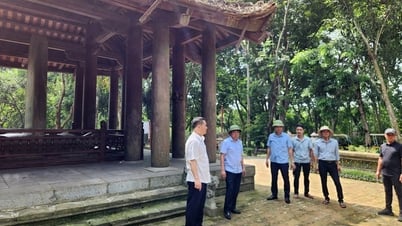











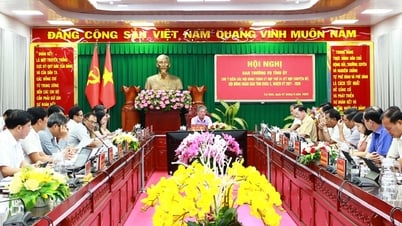


































































![[OCOP REVIEW] Tu Duyen Syrup - The essence of herbs from the mountains and forests of Nhu Thanh](https://vphoto.vietnam.vn/thumb/402x226/vietnam/resource/IMAGE/2025/6/5/58ca32fce4ec44039e444fbfae7e75ec)



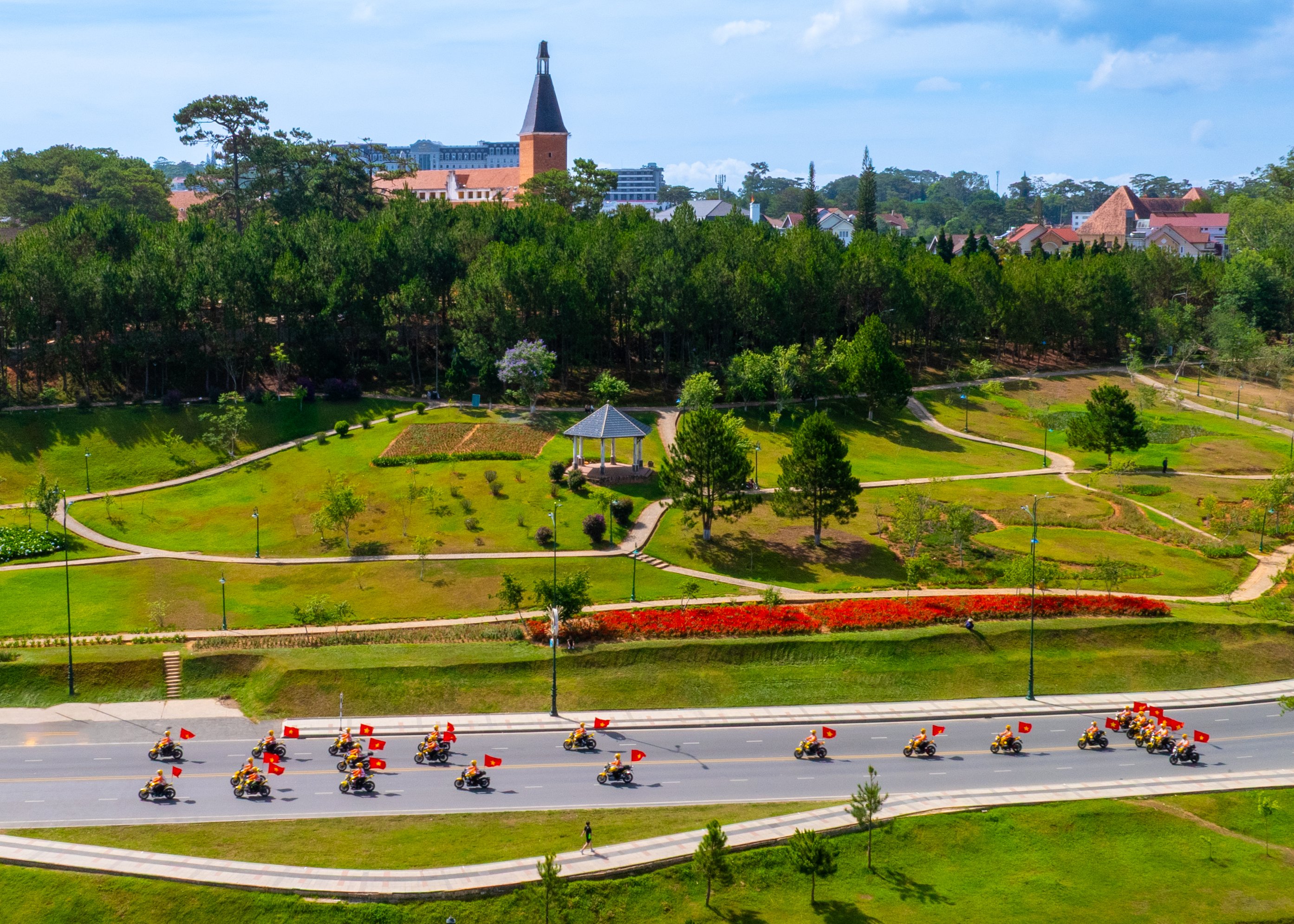



Comment (0)